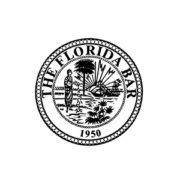Business Law Section to Diversify its Education Program Panels
By Jim Ash
Underscoring its commitment to diversity, the Business Law Section will soon mandate that its CLE program professional panels include members from underrepresented groups.
The new BLS “CLE Diversity Policy,” approved by the executive council on September 4, will apply to all CLE programs sponsored or co-sponsored by the section after January 1, according to BLS Chair Leyza B. Florin.
The new policy was developed jointly by members of the section’s Inclusion, Mentoring, and Fellowship Committee and The Florida Bar Diversity and Inclusion Committee, Florin said.
“Our Inclusion Mentoring Fellowship Committee did extensive work reviewing similar policies for organizations around the U.S. in developing this policy,” Florin said.
Under the policy, individual programs with a “faculty” of three or four-panel participants, including the moderator, would require at least one diverse member, and panels with five to eight members, including the moderator, would require at least two diverse members. Panels with nine or more members, including the moderator, would require three diverse members.
“The BLS will not sponsor, co-sponsor, or seek CLE accreditation for any program failing to comply with this policy unless an exception or appeal is granted,” the policy states.
The policy will be enforced by the IMF Committee.
An exception would be granted if “previously confirmed diverse speakers or moderators withdraw or become unable to attend,” and “insufficient time exists to replace them and maintain a diverse panel.”
The only other exemption would apply if, “After a diligent search and inquiry, the proponents of the CLE have affirmed they have been unable to obtain the participation of the requisite diverse members of the CLE panel.”
To implement the policy, the IMF Committee has been directed to create a “Diverse Speakers Directory.”
According to the policy, the directory will include a database of legal experts that “self-identify from a race, ethnicity, gender and gender identity, sexual orientation, disability and multicultural perspective.”




Dejar un comentario
¿Quieres unirte a la conversación?Siéntete libre de contribuir!